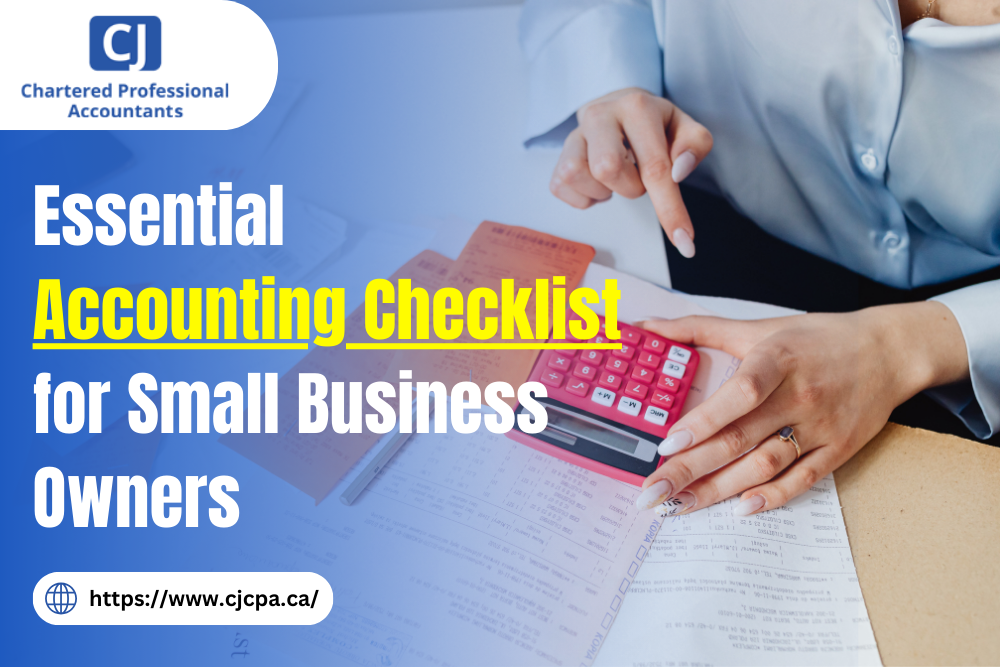Should I Hire an Accountant for My Small Business? Answered!
Stay updated with current accounting standards, business compliance, tax preparation tips, and latest news.

18 Sep 2025
Running a small business often means juggling everything yourself, sales, customer service, operations and finances. But as your business grows, handling money matters on your own can get tricky and even risky. That’s when the big question arises: Should I hire an accountant for my small business? The answer depends on your stage, goals and financial complexity. In this blog, we’ll explore the signs that it’s time, the benefits of hiring an accountant and how to decide what’s best for your business.
TLDR
Still wondering “Should I hire an accountant for my small business?” If your finances are simple and you’re just starting out, you may manage on your own for a while. But once taxes, payroll or compliance start piling up, hiring an accountant saves time, prevents costly mistakes and helps you plan smarter. A good accountant doesn’t just crunch numbers, they guide your business growth, improve cash flow and make sure you’re always on the right side of tax law.Signs You Need an Accountant for Your Small Business
Not sure if it’s the right time? Look out for these signs:1. You’re Struggling to Manage Books and Financial Records
If your financial records are messy, incomplete or constantly behind, it’s a clear sign you may need professional help. A business accountant can set up proper bookkeeping systems, reconcile your accounts, and ensure that every transaction is accurately tracked. This gives you a clear picture of your business’s health and helps avoid costly errors down the road.2. Tax Filing Feels Confusing or Stressful
Taxes are one of the most common pain points for small business owners. If you find yourself overwhelmed by tax codes, unsure about deductions or worried about penalties, hiring an accountant can provide relief. They not only handle your filings but also plan ahead to minimize your tax liability each year.3. Your Business Is Growing and Cash Flow Is Harder to Predict
Growth is exciting, but it also makes finances more complex. As revenue rises, so do expenses, payroll, and planning needs. An experienced accountant helps you forecast cash flow, manage expenses effectively and ensure your growth remains sustainable. This prevents financial bottlenecks that could slow down your progress.4. You’re Applying for Loans or Attracting Investors
Lenders and investors require detailed, accurate financial statements before they commit money to your business. If you’re seeking outside funding, an accountant ensures your financial reports are professional, compliant and credible. This not only increases your chances of approval but also shows stakeholders you’re serious about managing your finances.5. You Want to Spend Less Time on Paperwork and More on Business Growth
As a small business owner, your time is valuable. If managing books, invoices, and financial reports takes you away from serving customers or scaling your business, it’s time to outsource. An accountant frees up your time so you can focus on growth strategies and the parts of your business you love. If you recognize one or more of these, it may be time to bring in professional support.Benefits of Hiring an Accountant for a Small Business
An accountant does far more than filing taxes. Key benefits include:- Tax savings – They identify deductions and credits you might miss.
- Compliance – Ensure filings are on time and accurate, avoiding penalties.
- Cash flow management – Help track expenses, forecasts and growth opportunities.
- Strategic advice – Guidance on expansion, hiring or investing profits.
When Is the Right Time to Hire an Accountant?
Timing matters. You should consider hiring an accountant when:- You move from side hustle to full-time business.
- Your revenue reaches a level where taxes become complex.
- You start hiring employees and need payroll management.
- You’re preparing for expansion, loans, or investors.
What Does a Small Business Accountant Do?
A small business accountant helps with much more than taxes. They can:- Set up and manage bookkeeping systems.
- Prepare and file tax returns.
- Advise on business structure (sole prop, partnership, or corporation).
- Guide financial decisions like leasing, equipment purchases, or hiring.
- Provide long-term planning for stability and growth.
DIY vs Hiring an Accountant for Small Business
It’s tempting to do it yourself, especially in the beginning. Here’s a comparison: DIY Accounting- Lower cost (just software fees).
- Works for very small or early-stage businesses.
- High risk of errors if you’re not trained.
- Higher upfront cost but saves money long-term.
- Professional expertise to avoid penalties and missed deductions.
- Offers strategic advice that software can’t provide.


